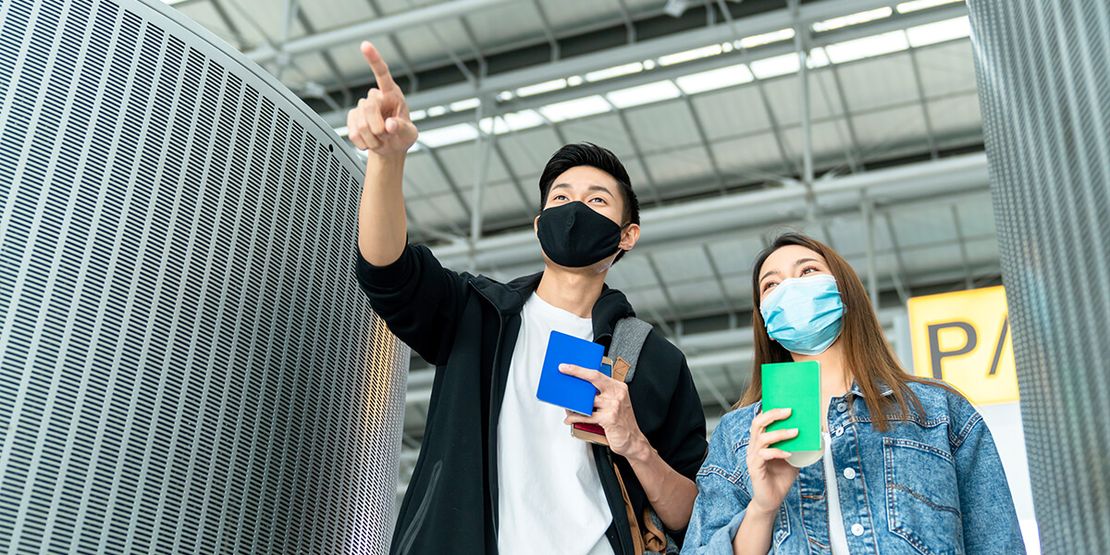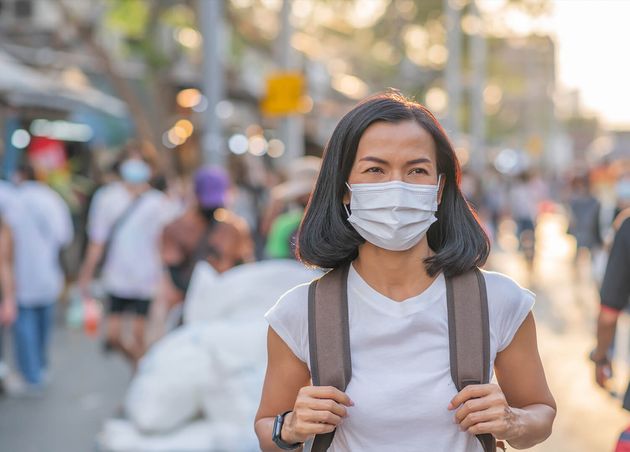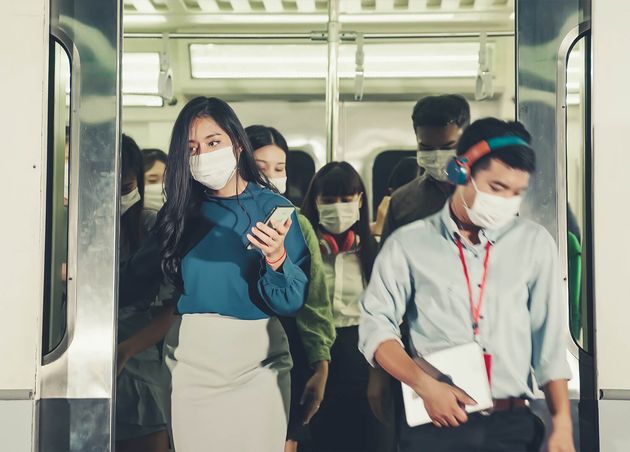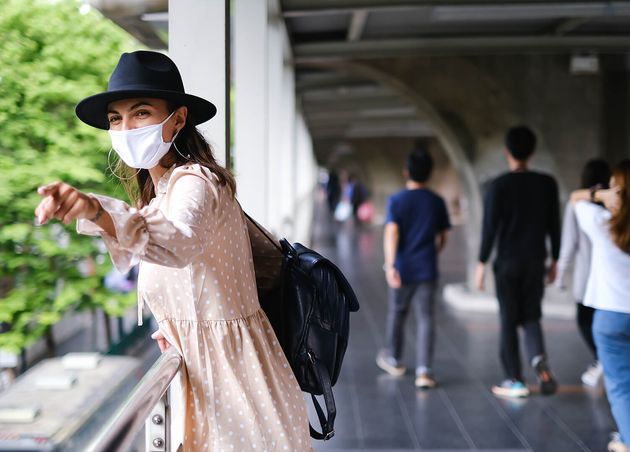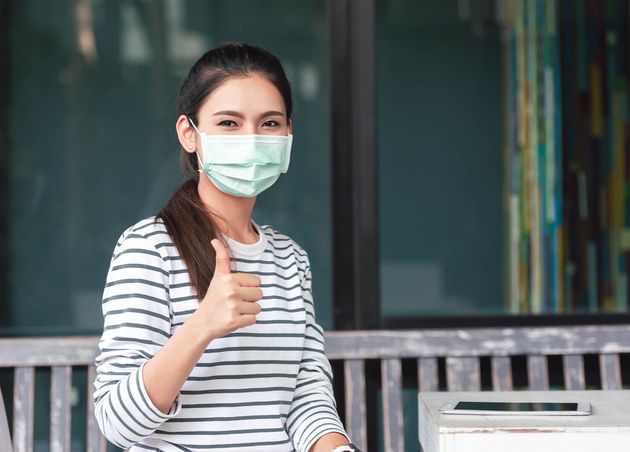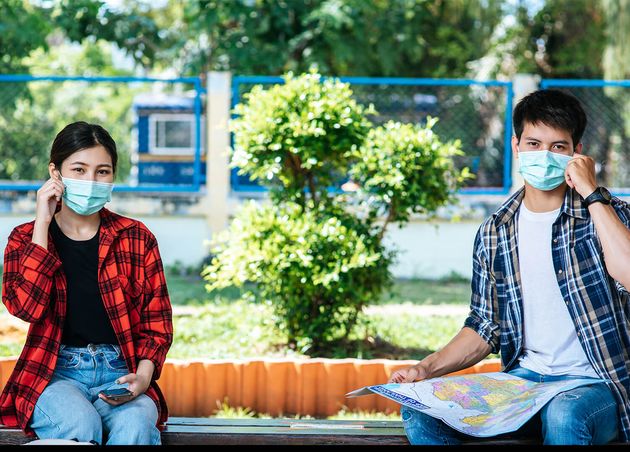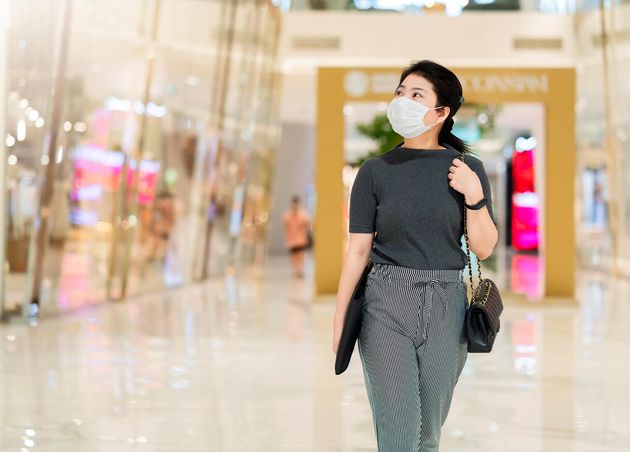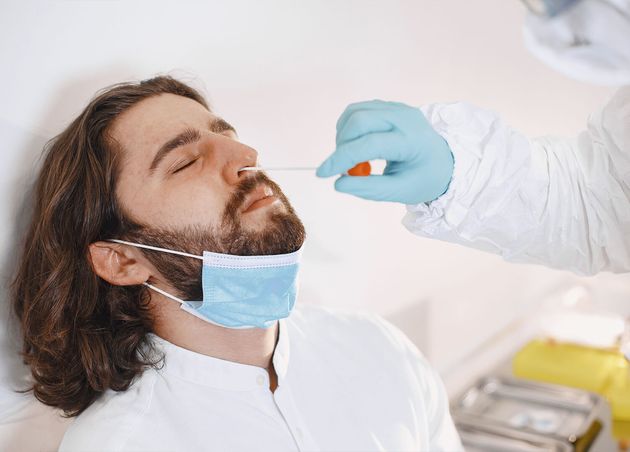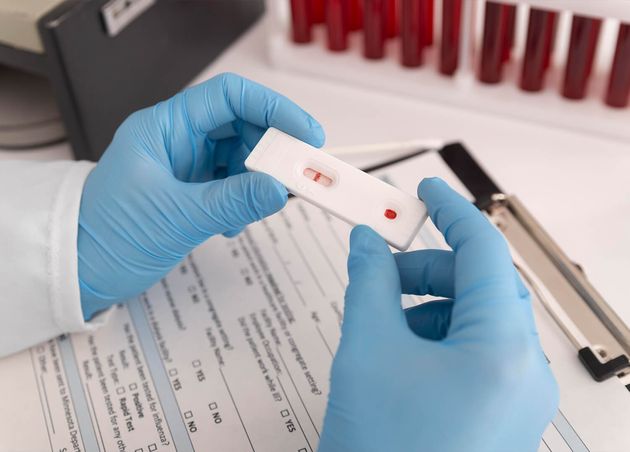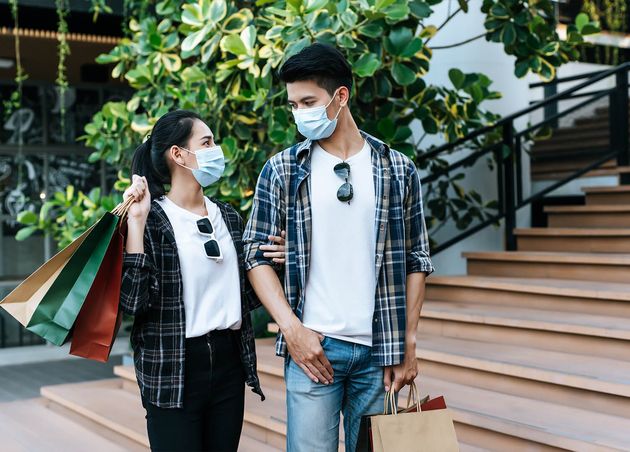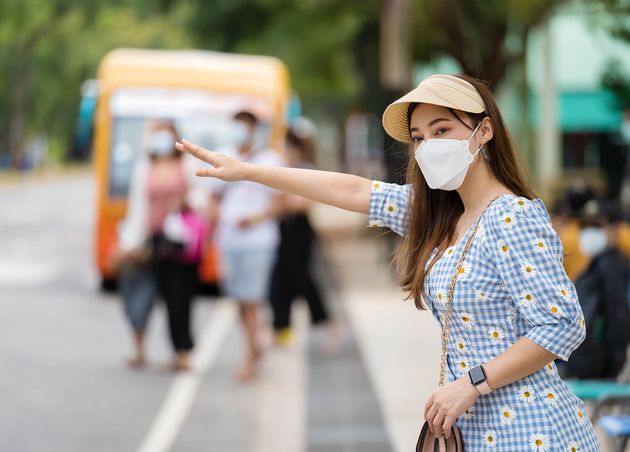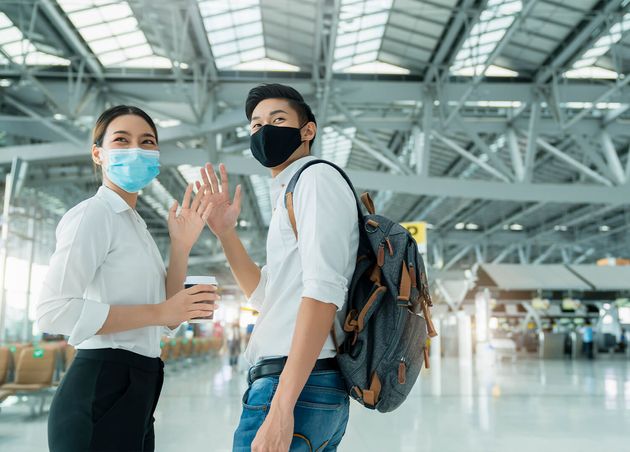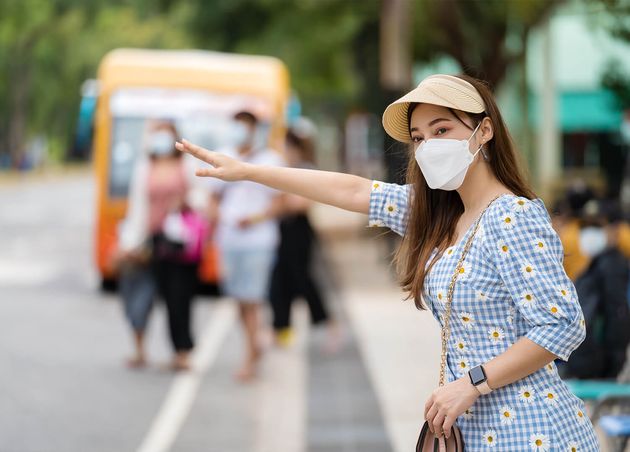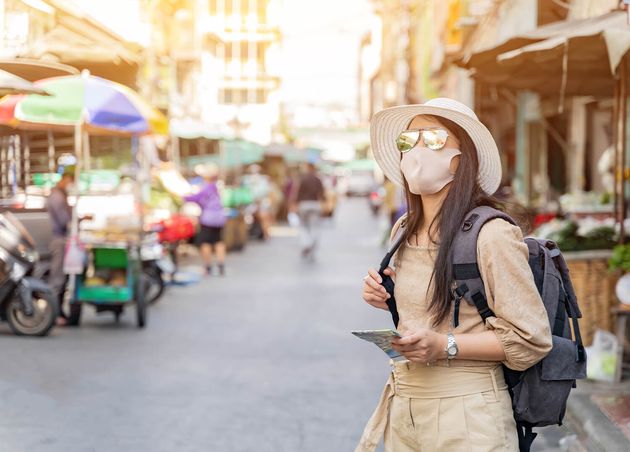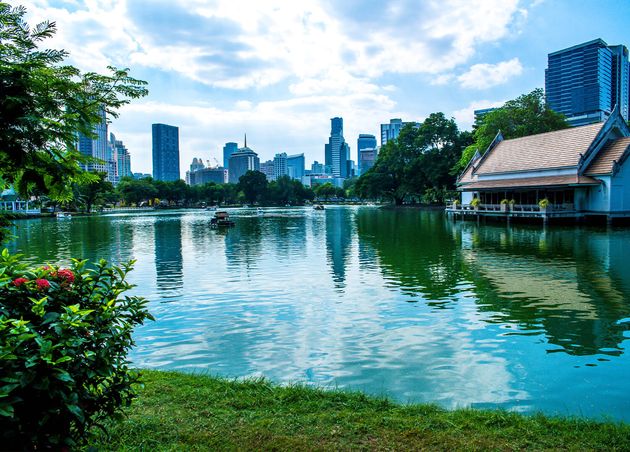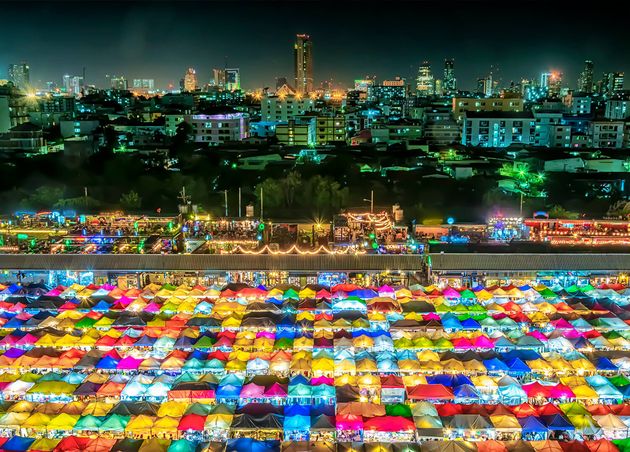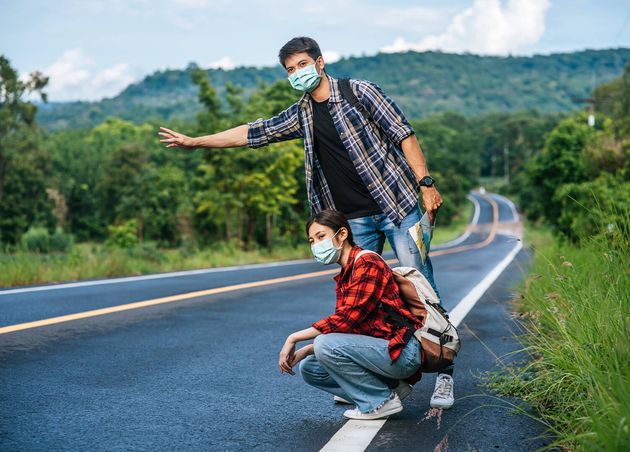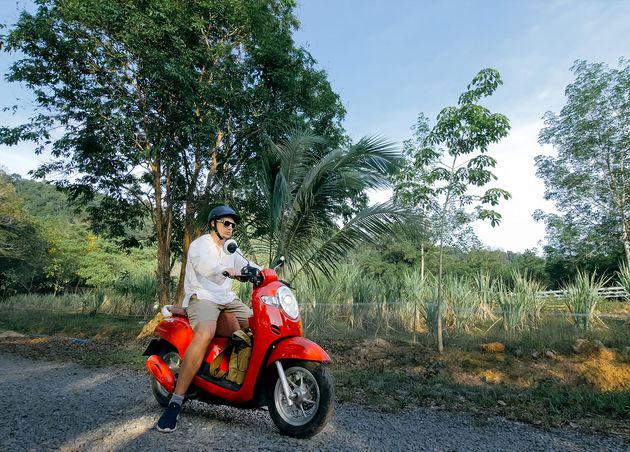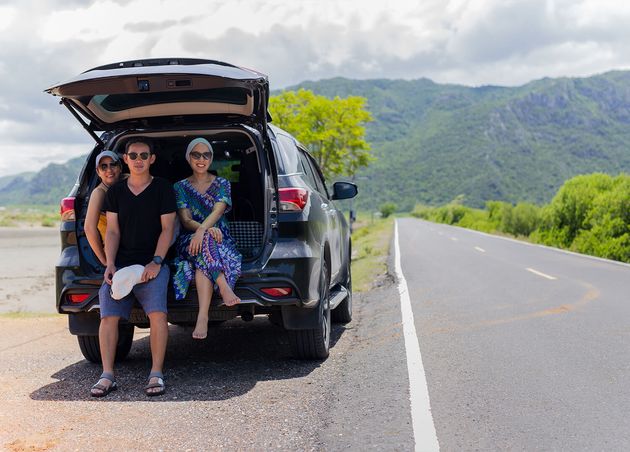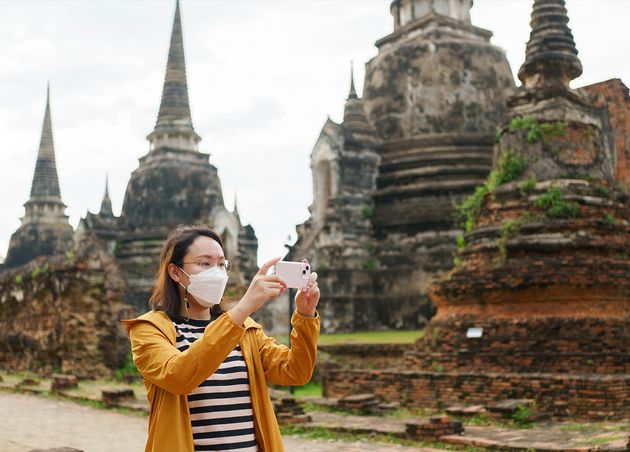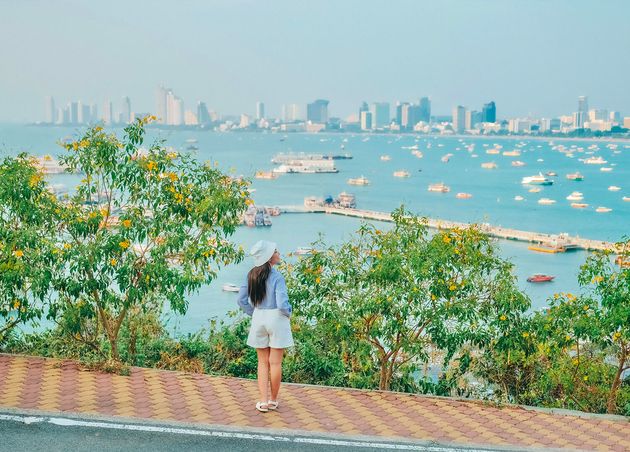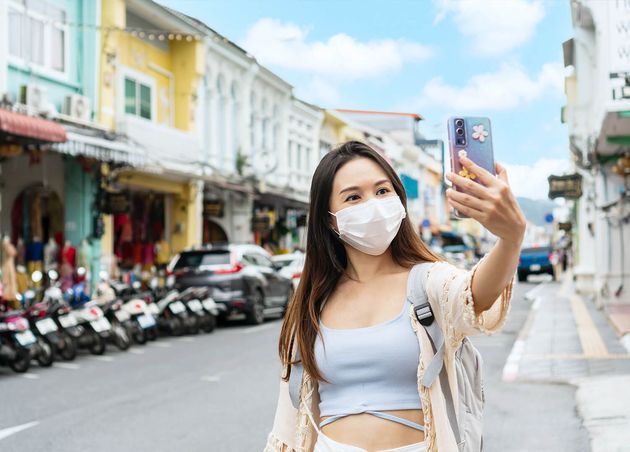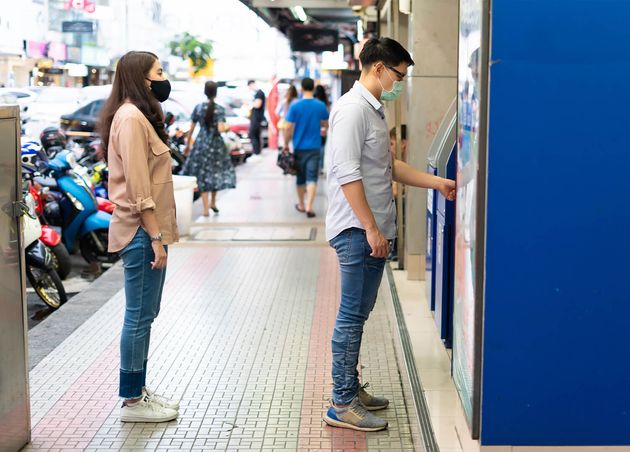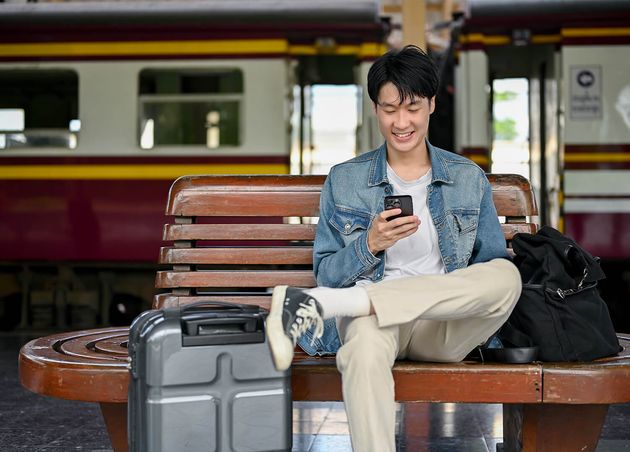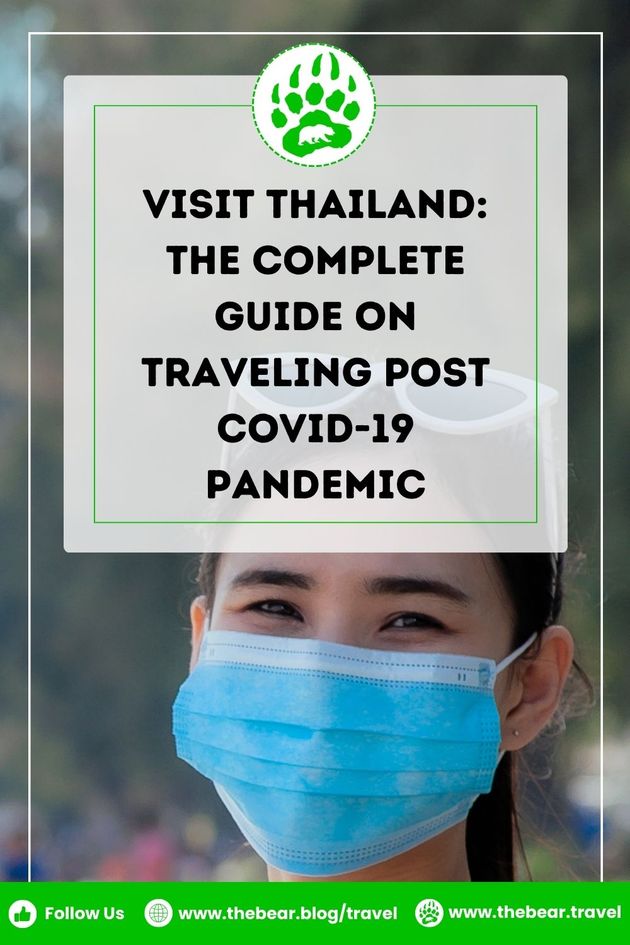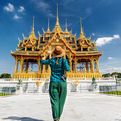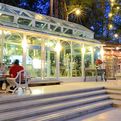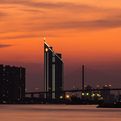Visit Thailand: The Complete Guide on Traveling Post-Pandemic
Getting off to an island paradise is now a reasonable expectation for many of us. During the last year, Thailand reopened the country for vaccinated travelers, meaning you can ultimately make that lifetime trip to endless happy destinations involving Krung Thep Maha Nakhon (Bangkok) and Phuket.
Thailand eventually experienced a decrease in the local transmission of COVID-19 and contained it successfully. But it was only possible due to its high standard and well-planned health techniques; still, it was less complicated than in other countries.
If you're craving street food adventures and dreaming of idyllic tropical islands, Thailand is once again a must-visit destination on your travel agenda. Travelers worldwide are eager to find out when and how to visit Thailand.
So what important things do travelers need to know about Thailand Travel if they plan to fly to the Land of Smiles post-pandemic? Here is the complete guide for you!
🧑🎓 Quick Trivia!
Thailand has been extremely successful in containing COVID-19, limiting the number of cases. However, even as the world faces new virus variants, Thailand’s lessons can guide other tourism-dependent countries to encounter the same dilemmas as they prepare for the resurgence of international travel.
Past COVID-19 Situation in Thailand
Thailand had closed all its borders to contain the spread of COVID-19 in previous years. But now, the country has opened to foreign and local travelers. So, fully-vaccinated travelers can now enter the country without quarantine.
Previously, visitors had to present a negative PCR test on day one; they could move around the country as they pleased until day five. Another test would be taken, with tourists waiting in their hotel until they get a confirmed negative result. After that, they'd freely explore again. They also need to download a tracking app to comply with the rules. But recently, traveling to Thailand doesn't require any testing.
In the past, the "sandbox scheme" allowed tourists to visit specific islands, but with the condition of undergoing tests and staying in designated hotels. The new restrictions were much lenient, although COVID restrictions were still under control. In Bangkok, a curfew meant the city's once-hallowed nightlife scene had to be somewhat subdued if the number of cases continued to increase.
However, strict planning and updated travel restrictions allowed Thailand's health authorities to control the spread and contain COVID-19. In addition, various health programs also helped control the situation, and eventually, Thailand was declared virus free and opened its borders and hidden gems to visitors stepwise.
Test and Go: No Quarantine
Travelers who are fully vaccinated, regardless of their country of origin, can now enter Thailand without quarantine. In the past, travelers had to fulfill the following requirements:
- Be fully vaccinated for more than 14 days before traveling.
- Book a SHA+ Hotel for days 1 and 5 to await the RT PCR COVID test.
- Possess COVID-19 insurance.
However, the Test and Go Program has been removed since July 2022.
SandBox Program
Fully vaccinated travelers from any country traveling to Thailand were also not expected to undergo a mandatory quarantine. Instead, they must enter Thailand under the Phuket Sandbox and Samui Sandbox programs. These travelers were required to spend seven nights in a designated SHA Plus Hotel located in destinations such as Phuket, Khao Lak, Krabi, Samui, Koh Phang Ngan, or Koh Tao before even being allowed to go to any other parts of Thailand.
After the pandemic emergency was lifted, the sandbox program was shelved, and visitors were no longer required to undergo quarantine.
Alternative Quarantine Program
International travelers who were unvaccinated or not fully vaccinated had to undergo the mandatory alternative quarantine of 10 days at any accredited Alternative State Quarantine or ASQ Hotels certified by the Ministry of Health. However, this program was also closed once the pandemic ended.
Thailand Pass
Previously everyone planning to visit Thailand was required to have a valid Thailand Pass, which was mandatory during the COVID-19 pandemic. The Thailand Pass was a web-based system designed to support Thailand’s “Ease of Travel” system and make the documentation process for travelers entering Thailand simpler and more efficient.
But since July 2022, visitors are no longer required to acquire Thailand Pass; instead, they must show clear proof of vaccination or Negative COVID-19 test results.
Thailand COVID Insurance for Foreigners
In addition to the previously required state quarantine, all foreign travelers to Thailand must present a valid travel insurance policy before leaving for Thailand. As part of the visa and Thailand Pass application process, travelers must submit a COVID travel insurance certificate to the Thai embassy. This certificate needed to explicitly state that the health insurance coverage was for a minimum of $50,000 and included coverage for COVID-19.
Despite the removal of quarantine requirements, the necessity for travel insurance remains unchanged, and foreign visitors are strongly advised to carry comprehensive travel insurance coverage.
COVID-19 PCR Test
Foreign visitors and Thai nationals entering Thailand will no longer be obligated to present a fit-to-fly certificate. In addition to the mandatory requirements of the Thailand Pass previously, travelers were also asked to provide flight reservations, hotel bookings, and COVID-19 insurance and furnish a COVID-19 RT-PCR test result conducted 72 hours before their international flight departure from their respective country of origin.
Thailand Health Screening
With the spread of COVID-19, Thailand has also executed new screening methods and health controls for airport travel. International arrivals were obligated to provide the following documents upon entry into Thailand:
- An essential requirement for entry was a physical copy of a COVID-19 PCR test result indicating a negative result.
- A printed and completed T8 Health Declaration form containing essential health information like body temperature, symptoms like fever or vomiting, and blood pressure.
- A detailed list of the locations visited before arriving in Thailand.
- A copy of the vaccination card, if applicable, which played a role in determining the required quarantine period for the traveler.
But as of January 2023, Thailand has lifted all travel restrictions, and foreigners can arrive without showing proof of vaccination or undergoing PCR tests.
Current Travel Situation in Thailand
If you plan a trip to Thailand, you have definitely chosen well; Thailand is an amazing and interesting country with something for everyone. Don't postpone any of your plans; you're safe in the country.
Getting to Thailand
Thailand sits at the center of the Indochinese Peninsula in Southeast Asia. Sharing borders with Cambodia, Laos, Malaysia, and Myanmar, international flights arrive from different corners of the world at Bangkok’s Suvarnabhumi Airport. In contrast, international train connections are available from many Southeast Asian countries.
Bangkok is the region's major travel hub, and Thailand has excellent international airports. Still, most tourists will arrive in Krung Thep Maha Nakhon (Bangkok) or Phuket. Krung Thep Maha Nakhon (Bangkok) has the modern and impressive Suvarnabhumi Airport, about 25 km east of the city center, where many foreign visitors will arrive. It is well organized with excellent facilities and numerous transport options to get you to Bangkok or other destinations.
Guidance for Navigating and Enjoying Your Arrival in Thailand
Jet lag can be the most unpleasant part of a long trip, but your experience can be improved with some planning. The best sleep is interruption-free, but that's not always possible on the plane. For weary travelers, the first thing you'll want to do is sleep off the jet lag.
Nothing to worry about, and it is very easy. You have to go to the basement of the arrival building and take the airport link railway system to the city. You will get the most comfortable rest at stations linked to the airports. Here are a few stations or areas where you could find suitable accommodations that could be a good choice for staying:
Airport Rail Link in Ramkhamhaeng
It is an area in the eastern part of Krung Thep Maha Nakhon (Bangkok). Ramkhamhaeng Road is the main road that has existed for a long time since the early days of urban expansion. Ramkhamhaeng University is the district's center and the starting point for expanding this area.
- Places to Explore
- Khlong Tan Market: a source of fresh food
- Khlong Tan Mosque: a Place of Islamic rituals
- Ramkhamhaeng University: an open government university that accepts students without a qualifying examination and is the center of this area.
- Assumption University (ABAC): the first university to offer international programs.
- Huamark Stadium: the main sports center of the Sports Authority of Thailand.
- The Mall in Ramkhamhaeng 3: a shopping center.
Bangkok Airport Rail Link in Makkasan Station
Makkasan Station stops on the Airport Rail Link (Airport Train), connecting Suvarnabhumi International Airport (BKK) to Bangkok city center. The station is situated on Kamphaeng Phet 7 Road, adjacent to the intersection of Kamphaeng Phet 7 Road and Asok Din Daeng Road. This intersection is commonly referred to as the Asoke – Din Daeng intersection.
Phaya Thai Station
Phaya Thai Station is a rapid transit station on the Airport Rail Link and Sukhumvit Line. The Airport Rail Link station is above the mainline Eastern Railway at a level crossing on Phaya Thai Road. There is a direct interchange to the BTS Sukhumvit Line.
Government buildings, office towers, condominiums, and Phaya Thai and Si Ayutthaya Road surround the station. Suan Pakkad Palace, a Traditional Thai Antiques Museum and Gallery, is nearby the station's east.
Discovering the Wonders of Bangkok
Bangkok, the capital of Thailand, has emerged as one of the most sought-after gateways to Asia. However, no trip to Thailand is complete without a few days in Krung Thep Maha Nakhon (Bangkok).
It’s a city filled with excitement. There are mega shopping malls, street food vendors, night markets, and more. Although not as before, there is always something happening. It will fix its entertainment again: car racing and shows, tech exhibitions, and festivities.
Some remnants of the old days remain in some parts of the city. At the end of the day, you can relax in the green oasis at Lumpini Park or have drinks at one of the rooftop bars while watching the sunset.
Must-See Attractions in Bangkok
- ICONSIAM
- Google Maps link: https://maps.app.goo.gl/JWFfeCTbxQcswWTL6
- ICONSIAM is the most impressive shopping center in Krung Thep Maha Nakhon (Bangkok). It's next to the Chao Phraya River and has over 7,000 shops, 100 restaurants, and even a floating market.
- The best way to get to ICONSIAM is by taking the free boats that leave from the Sathorn Pier dock and connecting the center to the BTS Saphan Taksin station.
- Google Maps link: https://maps.app.goo.gl/JWFfeCTbxQcswWTL6
- Chinatown
- Google Maps link: https://maps.app.goo.gl/796aLQz8bLbpVSvK9
- Chinatown in Krung Thep Maha Nakhon (Bangkok) is a truly captivating destination. Tourists are entranced by its lively atmosphere, the dazzling display of colorful lights, the intricate Chinese temples, and the extensive variety of street food offerings.
- On a tour of the Chinese Quarter of Krung Thep Maha Nakhon (Bangkok), you will get to know the Thai capital differently. A great experience is taking the passenger ferry across the Chao Phraya River to Chinatown.
- Google Maps link: https://maps.app.goo.gl/796aLQz8bLbpVSvK9
- Asiatique Riverfront
- Google Maps link: https://maps.app.goo.gl/Qq5DTiXJgmchQo6e6
- The Asiatique-riverfront is one of Bangkok's new top-night markets, Thailand. With its spectacular Ferris wheel and the beautiful location on the Chao Phraya River, this place has become one of Bangkok's best things to do.
- Visitors are excited about the unique atmosphere, countless great shops, and many good restaurants. Also, the boat ride to get there is an unforgettable experience.
- In addition, cabaret shows, Thai boxing, and a small amusement park ensure a successful and varied evening in Krung Thep Maha Nakhon (Bangkok). There are five ways to get from Makkasan to Asiatique bus, train, taxi, or foot.
- Google Maps link: https://maps.app.goo.gl/Qq5DTiXJgmchQo6e6
- Grand Palace
- Google Maps link: https://maps.app.goo.gl/AYH2X5bSs1EgqrEF8
- The park encompasses a slender strip of lush greenery that envelops the expansive Lake Ratchada. The entire park has dedicated tracks for cycling and jogging, offering a delightful recreational experience. The water's edge is adorned with meticulously cared-for plant life and vibrant flowers, enhancing the overall serenity of the area.
- Additionally, the park features playgrounds, skate ramps, a central pavilion graced with fountains, and a remarkable half-circle courtyard, a favorite spot for picnics in Benjakitti Park.
- Google Maps link: https://maps.app.goo.gl/AYH2X5bSs1EgqrEF8
Green Spaces and Parks to Explore in Bangkok
- Benjakitti Park
- Google Maps link: https://maps.app.goo.gl/xFzTbPRA6S5CKp9XA
- Benjakitti Park is situated opposite the Queen Sirikit National Convention Centre. The park forms a narrow swathe of green around the expansive Lake Ratchada, with dedicated bicycle and jogging tracks encircling the whole park.
- The water’s edge is also nicely framed by some pretty, well-maintained plant life and colorful flowers, adding to the tranquillity. You’ll also find playgrounds, skate ramps, a central pavilion with fountains, and an impressive half-circle courtyard popular for picnics in Benjakitti Park.
- Google Maps link: https://maps.app.goo.gl/xFzTbPRA6S5CKp9XA
- Lumpini Park
- Google Maps link: https://maps.app.goo.gl/mzJW4RqDEyNip6SBA
- Lumpini Park is one of the largest green spaces in central Bangkok. Encompassing more than 500,000 square meters, this urban park is a sanctuary for diverse flora and fauna.
- As time has passed, it has evolved into a favored meeting place for the inhabitants of Bangkok. Locals convene here for activities such as jogging, gentle exercises, aerobics, and other leisurely pursuits, forming a vibrant hub of daily life.
- There are three ways to get from Makkasan (Station) to Lumpini Park by bus, taxi, or foot. The fastest way to get from Makkasan (Station) to Lumpini Park is by taxi.
- Google Maps link: https://maps.app.goo.gl/mzJW4RqDEyNip6SBA
- Benjasiri Park
- Google Maps link: https://maps.app.goo.gl/FHQEosxjMBdrMGLP7
- Benjasiri Park is a haven for enthusiasts of sculpture art, as it houses an array of outstanding Thai sculptures throughout its grounds.
- Beyond this artistic aspect, the park sets itself apart by providing outdoor sports amenities seldom seen in other public parks within Krung Thep Maha Nakhon (Bangkok).
- These facilities encompass a basketball court, a roller skating and skateboarding rink, a tennis court, an open-air swimming pool, and a versatile multi-purpose court suitable for various sports activities.
- The park is conveniently near the Emporium shopping mall, approximately 100 meters northwest of the Phrom Phong BTS Skytrain Station.
- Google Maps link: https://maps.app.goo.gl/FHQEosxjMBdrMGLP7
Exploring the Vibrant Local and Night Markets of Bangkok
The Central World mega-shopping complex in Krung Thep Maha Nakhon (Bangkok) offers one of the most exciting shopping experiences in the Thai capital. There are three ways to get from Makkasan to CentralWorld: bus, taxi, or foot. Whatever your choice, it will take 10 minutes to reach the location.
- EmQuartier Bangkok boasts an expansive retail space spanning approximately 600,000 square meters in the heart of downtown Bangkok, housing a diverse collection of 1,000 local and international stores.
- If you plan to shop in Krung Thep Maha Nakhon (Bangkok), Punnawithi is the best area. It is a great place with all the important amenities for Westerners and is non-touristic. Shoppers are in luck, as the malls in this area are lavish and grand. This location is easily accessible by the Sukhumvit BTS line.
- Mega Bangna Shopping Mall covers 35,000 sq m of retail space, making it one of the largest malls in Southeast Asia. Located halfway between Suvarnabhumi International Airport and central Bangkok, free shuttles take you to this mall from the Bangna BTS Skytrain Station.
- Chatuchak is one of Thailand's biggest and largest weekend markets worldwide. The popular market has over 15,000 stalls selling everything from food to clothes to pets. You're sure to find something you want!
Optimal Methods of Transportation for Getting Around Thailand
Traveling by vehicle or renting a car offers Thailand a unique and engaging experience. It provides the freedom to shape your travel plans and ensures your safety. Particularly for longer holiday trips, this mode of transportation is highly advantageous. Here is a comprehensive guide to help you navigate renting a car or motorbike in Thailand.
How to Rent a Motorbike in Thailand?
If you plan to rent a motorbike in Thailand, it’s not as complex as you might imagine. On the contrary, it’s all pretty simple! Make sure that you choose a rental shop that provides insurance. You want to be covered if you do have an accident. However, there are some key points to pay attention to when renting a motorbike.
- Weekly Motorbike Rentals are Cheaper
- Consider Buying Bike Insurance in Thailand
- Never Hand Over Your Passport
- Take Photographic Evidence
- Take photographic evidence (photos or video) of the bike’s condition before you touch it or even take off.
- Cost of Renting A Motorbike
- Motorbike rental prices in Thailand are generally quite affordable. On average, you can actually expect to pay around 150 to 300 Thai Baht daily, equivalent to $5 to USD 10.
- Remember that the specific type of motorbike you choose will also influence the rental price, with different models potentially leading to cost variations.
How to Rent a Car in Thailand?
Hiring a car in Thailand is straightforward and a great way of seeing the country. You must legally drive in Thailand with a Thai or international driver's license.
- What Is the Process of Renting a Car in Thailand?
-
Renting a car in Thailand typically follows a similar process across different rental companies. Here's an overview of how it usually works:
-
Signing a Car Rental Contract: When you arrive at the car rental location, you must complete the necessary paperwork and sign a rental contract which should outline the terms and conditions of the rental, including the rental duration, rates, insurance coverage, and any additional fees.
-
Inspecting the Rental Car: Before accepting the rental car, thoroughly inspect it for any existing damages or issues. Carefully take note of any scratches, dents, or other visible damage. You can even take photos or videos as evidence. This inspection helps prevent any disputes about damages when you return the car.
-
Picking Up or Dropping Off the Rental Car: Once the paperwork is completed and the car has been inspected, you'll be handed the keys to the rental car. Ensure you understand the fuel policy (full-to-full or otherwise) and any specific instructions from the rental company.
-
Optional Insurance: While signing the rental contract, you'll likely have the option to purchase additional insurance coverage. This can include collision damage waiver (CDW), theft protection, and liability insurance. Evaluate your existing travel insurance or credit card coverage to see if it includes rental car protection. If not, consider opting for the rental company's insurance to ensure you're covered in accidents or damage.
It's important to carefully read and understand the terms of the rental contract, including insurance coverage, fuel policy, mileage limits, and any additional fees. By being well-informed and thorough during the rental process, you can have a smoother and more enjoyable experience with the car you rented in Thailand.
-
-
- Which Car Rental Companies are the Most Popular Ones in Thailand?
- There are many popular local car rental companies. Some of them include the following:
- Thai Rent a Car
- Chic Car Rental
- Bizcar Rental
- Ezy Rent a Car
- Sawasdee Rent a Car
- North Wheels Rent A Car
- There are many popular local car rental companies. Some of them include the following:
- Should I Get A Car Insurance?
- Car insurance shouldn't be overlooked when renting a car in Thailand.
- Car Insurance Through Credit Card Companies: The company may offer rental coverage if you pay using your credit card. Opting for this choice is simple, as it spares you the inconvenience and expenses of obtaining insurance directly from the car rental company.
- Car Insurance Through Credit Card Companies: The company may offer rental coverage if you pay using your credit card. Opting for this choice is simple, as it spares you the inconvenience and expenses of obtaining insurance directly from the car rental company.
- Car insurance shouldn't be overlooked when renting a car in Thailand.
- Should I Get A Travel Insurance?
- When obtaining travel insurance, inquire about the inclusion of rental car coverage.
- If it's not part of the package, request it separately.
- Before departing for Thailand, all visitors should secure travel insurance to protect them in case of emergencies.
- What is the Cost of Hiring a Car in Thailand?
- It isn't expensive to rent a car in Thailand. But, of course, local transport isn't either, so you need to weigh up the pros and cons.
- You are looking at around $20 per day, which covers you for fully comprehensive insurance in a medium-sized sedan or saloon car.
Nearby Gems for Exploration in Thailand
- Phra Chulachomklao Fort
- The Naval History Park at Chulachomklao Fortress is at the mouth of the Chao Phraya River, Tambon Laem Fa Pha. In addition, there is a gun park showing the history of guns and an interesting mangrove forest walk.
- How to Get There?
- Situated at the Chao Phraya River estuary in Tambon Laemfarpha, Phra Samut Chedi District, and approximately seven kilometers from Phra Samut Chedi on Sukswasdi Road, the fort holds its prominent position.
- Although you can take bus number 20 to the end of the line, arranging your transport from Phra Samut Chedi is best.
- Wat Sothon Wararam Worawihan
- Wat Sothon Wararam Worawihan is the ancient temple of Chachoengsao Province. It is the enshrinement place of Luang Por Phutthasothon, the revered Buddha image of many people in Thailand since ancient times. It is located on Marupong Road, about 2 kilometers from the downtown market.
- How to Get There?
- You can easily reach the place by train, by bus (Mo Chit), or use the easiest way and take a van from the Central Van Station at Victory Monument (right under the Skytrain).
- Ayutthaya
- Thailand's former capital of Ayutthaya is adorned with captivating yet weathered ruins, making it a favored day-trip destination from Bangkok.
- However, a fresh surge of contemporary dining and accommodation choices entices travelers to extend their stay, transforming a visit to this culturally enriching city into a weekend retreat.
Intriguing Medium-Distance Journeys to Experience in Thailand
- Pattaya
- Pattaya is a beach-resort destination on Thailand's eastern seaboard, famous for its nightlife and wild scenery.
- However, there's a rapidly growing family-friendly scene in Pattaya these days. Family-friendly attractions and activities attract families from far and wide.
- How to Get to Pattaya?
- Two cheap and convenient ways to get around Pattaya are by bus and motorcycle taxi.
- In addition, meter taxis, the GrabTaxi app, local private taxis, and even private car and driver charters are also available.
- Hua Hin
- Hua Hin has been a popular beach escape for Thai tourists for almost a century. Easy to reach from Krung Thep Maha Nakhon (Bangkok), and with a good selection of beaches and family-friendly attractions, the area continues to attract Thai tourists and international visitors.
- How to Get to Hua Hin?
- The quickest option to reach Hua Hin from Krung Thep Maha Nakhon (Bangkok) is by taxi, taking around 3 to 4 hours, depending on traffic.
- From Suvarnabhumi airport, a bus service to Hua Hin for 269 Baht with a journey time of approximately 4 hours.
- Most other public buses from the Thai capital to Hua Hin operate out of Bangkok’s Southern Bus Terminal with fares of around 150 Baht.
- Khao Sam Roi Yot
- Covering about 98 km², Khao Sam Roi Yot National Park is situated in Prachuap Khiri Khan Province, right south of Hua Hin. It is one of the first marine national parks in Thailand.
- How to Get to Khao Sam Roi Yot?
- It is impossible to get to the park without any Thailand transportation options.
- Private transportation is needed, either by own car/bike or with taxi arrangements.
- Khao Yai
- Khao Yai National Park is one of the largest national parks in Thailand.
- Due to its exceptional biodiversity, distinctive environment, and globally significant rainforest, Khao Yai and the adjacent Dong Phayayen mountains were designated as UNESCO World Heritage Site.
- How to Get to Khao Yai?
- Most people travel by car, as Khao Yai is only a 2½-hour drive from Krung Thep Maha Nakhon (Bangkok).
- However, public transport inside the park is non-existent, so having your transport is highly recommended.
- Koh Samet
- Koh Samet is a small island about 6.5 kilometers long on Thailand's Eastern Gulf coast.
- This captivating island gem is renowned as one of the most beautiful islands near Pattaya, drawing admiration from travelers worldwide for its numerous pristine white beaches.
- How to get to Koh Samet?
- Getting to Koh Samet is easy! If you want to travel from Krung Thep Maha Nakhon (Bangkok) to Koh Samet, taking the public bus from the Ekamai terminal is best.
- Koh Larn
- Off the coast of Pattaya is a really small beach paradise called Koh Larn. It is a small island and one of the must-see places in Pattaya.
- How to get to Koh Larn?
- Arranging a trip to Koh Larn is quite straightforward. Starting from Krung Thep Maha Nakhon (Bangkok), you can take a bus to Pattaya (which takes around 2 hours).
- From there, you can proceed to Koh Larn by speed boat or the Koh Larn island ferry.
- River Kwai
- The Khwae Yai River also called the Si Sawat, is in western Thailand. Its origin lies in the Tenasserim Hills, and it winds its way for approximately 380 kilometers through Sangkhla Buri, Si Sawat, and Mueang Districts of Kanchanaburi Province. Eventually, it converges with the Khwae Noi River at Pak Phreak, forming the Mae Klong River.
- Cha-Am Beach
- Cha-Am beach is characterized by its cleanliness and the absence of the bustling activities often encountered on Thailand's more popular beaches. However, various activities are still available to enhance the beach experience for those seeking more than just relaxation under a beach umbrella.
- For the younger crowd, there are enjoyable pony rides along the beach and exciting banana boat rides. Adventure enthusiasts can indulge in water skiing, windsurfing, and parasailing, taking advantage of the beach's elongated stretch. In this way, Cha-Am's expansive shoreline caters to a diverse range of preferences and interests.
Epic Long-Distance Destinations to Venture to in Thailand
- Sukhothai
- The ruins of Sukhothai are one of Thailand’s best-kept secrets. They are dotted with the columns and spires of 700-year-old temples and shrines. Presided over by the serene visages of massive Buddha statues, the remnants of the Thai state’s first capital have a magical, frozen-in-time feeling.
- How to get to Sukhothai?
- You have a couple of options to travel to Sukhothai from Bangkok. Bangkok Airways operates daily flights from Bangkok Suvarnabhumi Airport to Sukhothai Airport, with a continuing route to Lampang.
- Alternatively, you can opt for the express train journey to Phitsanulok, followed by a bus ride to Sukhothai (approximately 1 hour). Opting for the latter option, a tuk-tuk ride from the train station and to the bus station typically amounts to around 60 Thai Baht.
- Chiang Mai
- With the country's best restaurant and cafe scene, excellent nightlife, a strong Buddhist presence, and more than enough activities to fill a calendar year, there is no shortage of fun things to do in Chiang Mai!
- Phuket
- For the best introduction to Thailand's stunning scenery and warm culture, visit Phuket, one of the country's largest islands.
- Koh Chang
- Koh Chang Island, known as ‘Elephant Island’ because of its elephant-shaped headland, is Thailand’s third-largest island after Phuket and Koh Samui.
- Situated approximately 300 kilometers east of Krung Thep Maha Nakhon (Bangkok) in Trat Province, in the Gulf of Thailand, near the Cambodian border, Koh Chang offers a stunning destination for travelers.
- How to Get to Koh Chang?
- When it comes to reaching Koh Chang, there are several transport choices from Krung Thep Maha Nakhon (Bangkok). For those who wish to experience local life along the route, opting for a bus ride from Ekkamai Bus Station in Bangkok to one of the mainland piers in Laem Ngop is the most economical method to reach the island.
Navigating Currency and Payments in Thailand
Thailand's currency is the "baht" (THB). While major hotels and large shops do accept credit cards, "hard cash" in the form of baht is the preferred method of payment in most places.
Currency Exchange
Don’t change money over Thai Baht before you get to Thailand. You can do that 24/7 in Krung Thep Maha Nakhon (Bangkok) and many cities such as Pattaya and Chiang Mai.
Banks
Banks in Thailand are operational daily, with their opening hours differing, typically from 8:30 to 17:30 on weekdays, Monday through Friday. Notably, their operating hours in shopping malls can extend even until 8 pm.
ATMs
ATMs are everywhere, and now they are open 24 hours a day.
Staying Connected in Thailand
Staying connected while traveling has become remarkably convenient. Free Wi-Fi is readily available in popular tourist areas, and acquiring SIM cards is hassle-free. Therefore, if your visit to Thailand is limited to a week or two, you can manage well using your existing data plan or relying on Wi-Fi access.
Purchase a SIM Card
Purchasing a local SIM card in Thailand is relatively easy. You can do so by visiting any 7-Eleven store or cell phone shop. Various plans, including those with data, are available to suit your needs. Opting for a cost-effective pay-as-you-go plan offers flexibility unless you require frequent calls or extensive data usage, in which case a prepaid plan might be suitable.
Cell phone store staff generally communicate in English in tourist-centric areas like Krung Thep Maha Nakhon (Bangkok). Simply present your phone, discuss your plan preferences, and they can assist you in installing a local SIM card.
Reimagining Thailand Travel in the Post-Pandemic Era
What are you waiting for? Plan your travel to Thailand now and navigate the intricate transformation of Thailand's tourism landscape through my encompassing guide. Witness the country's resilient journey as it adapts and innovates, blending tradition with modernity and introducing cutting-edge safety measures.
From revitalized cultural landmarks to the allure of its natural beauty and delectable cuisine, Thailand emerges as a compelling destination. This guide equips you with insights to explore this new chapter in Thai travel, instilling knowledge and a renewed sense of wanderlust. Embark on your adventure in the "Land of Smiles," fully prepared for the exciting discoveries that await.
🧑🎓 Vocabulary Time!
Blemish
: a minor mark or imperfection that detracts from the overall appearance of something
Condominium
: a building or complex of buildings containing some individually owned apartments or houses
Jet lag
: a transient sleep-related issue that can impact individuals who rapidly traverse multiple time zones
Pier
: a platform on pillars that extends from the shore into the sea; additionally, a jet bridge is a long, narrow structure extending from an airport terminal, providing passengers with direct access to an aircraft
Skateboarding
: a popular recreational and sports activity, particularly among youths, where a person balances and rides on a small board mounted on wheels while standing
Dr. Theodore (Professor Bear)
Hi! I'm Dr. Theodore Bennet (Professor Bear), your scholarly travel companion who brings history to life with immersive tours and expert guides. With a Ph.D. in History and years of travel writing experience, I offer authoritative insights for unforgettable journeys.
The Bear Travel | Experience like a Local
A fast-growing Thailand Travel Blog written by Expats and Thais since 2017. We will share our experiences and ideas from an insider point of view for you to create your own unique Thailand experience.
For the latest news and events about The Bear Travel, follow us on Facebook, Instagram, Twitter, Pinterest, or YouTube.
For any issues, concerns, or queries, don’t hesitate to CONTACT us.
Recommended for you
Professor Bear: The Complete Thailand Holiday Q & A
Dr. Theodore (Professor Bear)
Travel to Thailand: Avoid These Common Myths and Hacks
Dr. Theodore (Professor Bear)


